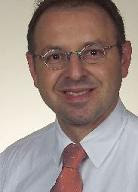Percom2012 - Call for papers as
PDF or as
text-file.
PerCom 2012
IEEE International Conference on Pervasive Computing and Communications
March 19 - 23, 2012, Lugano, Switzerland
CALL FOR PAPERS
IEEE PerCom, now in its 10th edition, has established itself as the premier annual scholarly venue in the areas of pervasive computing and communications. Pervasive computing and communications has evolved into an active area of research and development, due to the tremendous advances in a broad spectrum of technologies and topics including wireless networking, mobile and distributed computing, sensor systems, RFID technology, and the ubiquitous mobile phone.
PerCom 2012 will be held in Lugano, an international city and the crossroads and melting pot of European culture. PerCom 2012 will provide a leading edge, scholarly forum for researchers, engineers, and students alike to share their state-of-the art research and developmental work in the broad areas of pervasive computing and communications. The conference will feature a diverse mixture of interactive forums: core technical sessions of high quality cutting-edge research articles; targeted workshops on exciting topics; live demonstrations of pervasive computing in action; insightful keynote speeches; panel discussions from domain experts; and posters of budding ideas. Research contributions are solicited in all areas pertinent to pervasive computing and communications, including:
- Innovative pervasive computing applications
- Context modeling and reasoning
- Programming paradigms for pervasive systems
- Software evolution and maintenance in pervasive systems
- Middleware services and agent technologies
- Adaptive, autonomic and context-aware computing
- Mobile/Wireless computing systems and services in pervasive computing
- Energy-efficient and green pervasive computing
- Communication architectures for pervasive computing
- Ad hoc networks for pervasive communications
- Pervasive opportunistic communications and applications
- Enabling technologies for pervasive systems (e.g., wireless BAN, PAN)
- Positioning and tracking technologies
- Sensors and RFIDs in pervasive systems
- Multimodal sensing and context for pervasive applications
- Pervasive sensing, perception and semantic interpretation
- Smart devices and intelligent environments
- Trust, security and privacy issues in pervasive systems
- User interface, interaction, and persuasion
- Pervasive computing aspect of social network software
- Virtual immersive communications
- Wearable computers
- Standards and interfaces for pervasive computing environments
- Social and economic models for pervasive systems
Workshops and affiliated events:
Many workshops will be held in conjunction with the main conference. Workshop papers will be included and indexed in the IEEE digital libraries (Xplore), showing their affiliation w
ith IEEE PerCom. As in the past, PerCom 2012 will also feature a PhD Forum, Demonstrations and a Work-in-Progress Session. Please see the website
www.percom.org for details on current and past PerCom conferences.
Important Dates
Paper Registration: Sep 23, 2011
Paper Submission: Sep 26, 2011
Author Notification: Dec 20, 2011
Camera-ready Due: Jan 27, 2012
Submission Guidelines
Submitted papers must be unpublished and not considered elsewhere for publication. They must show significant relevance to pervasive computing and networking. Only electronic submissions in PDF format will be considered. Papers must be 9 pages or less, including references, figures and tables (at least 10pt font, 2-column format). The IEEE LaTeX and Microsoft Word templates, as well as formatting instructions, can be found at the conference web site. Submissions will undergo a rigorous review process handled by the Technical Program Committee. The best paper will receive the prestigious Mark Weiser Best Paper Award. Top selected papers will be considered for a special issue of the Elsevier journal of Pervasive and Mobile Computing (PMC)
For additional information, see www.percom.org for details on current and past PerCom conferences, or contact the
PerCom 2012 organizing committee at
percom2012@supsi.ch
Organizing Committee
General Co-Chairs
Silvia Giordano, SUPSI, CH
Marc Langheinrich, Univ. of Lugano, CH
Program Chair
Albrecht Schmidt, Univ. of Stuttgart, DE
Vice Program Co-Chairs
Jie Liu, Microsoft Research, USA
Georges Roussos, Univ. of London, UK
Alexander Varshavsky, AT&T Labs, USA
Workshops Co-Chairs
Pedro Marron, Univ. Duisburg-Essen, DE
Marius Portmann, Univ. of Queensland, AU
Steering Committee Chair
Marco Conti, IIT-CNR, IT
 IEEE Computer seeks submissions for an April 2012 special issue on interaction beyond the keyboard.
IEEE Computer seeks submissions for an April 2012 special issue on interaction beyond the keyboard.


